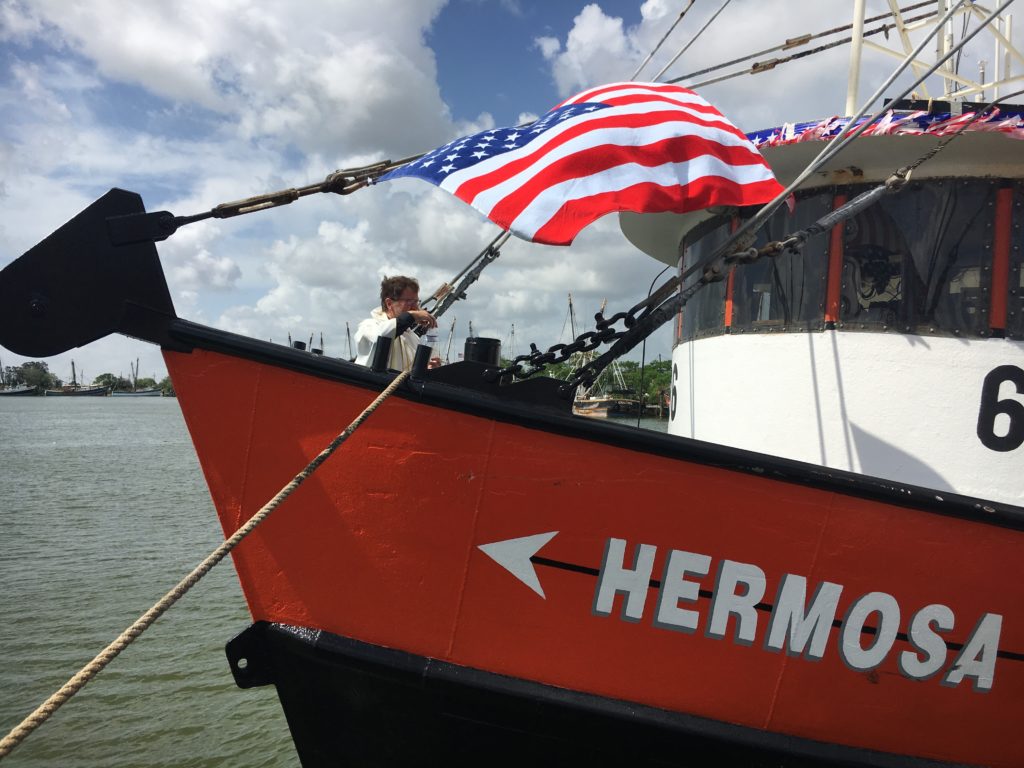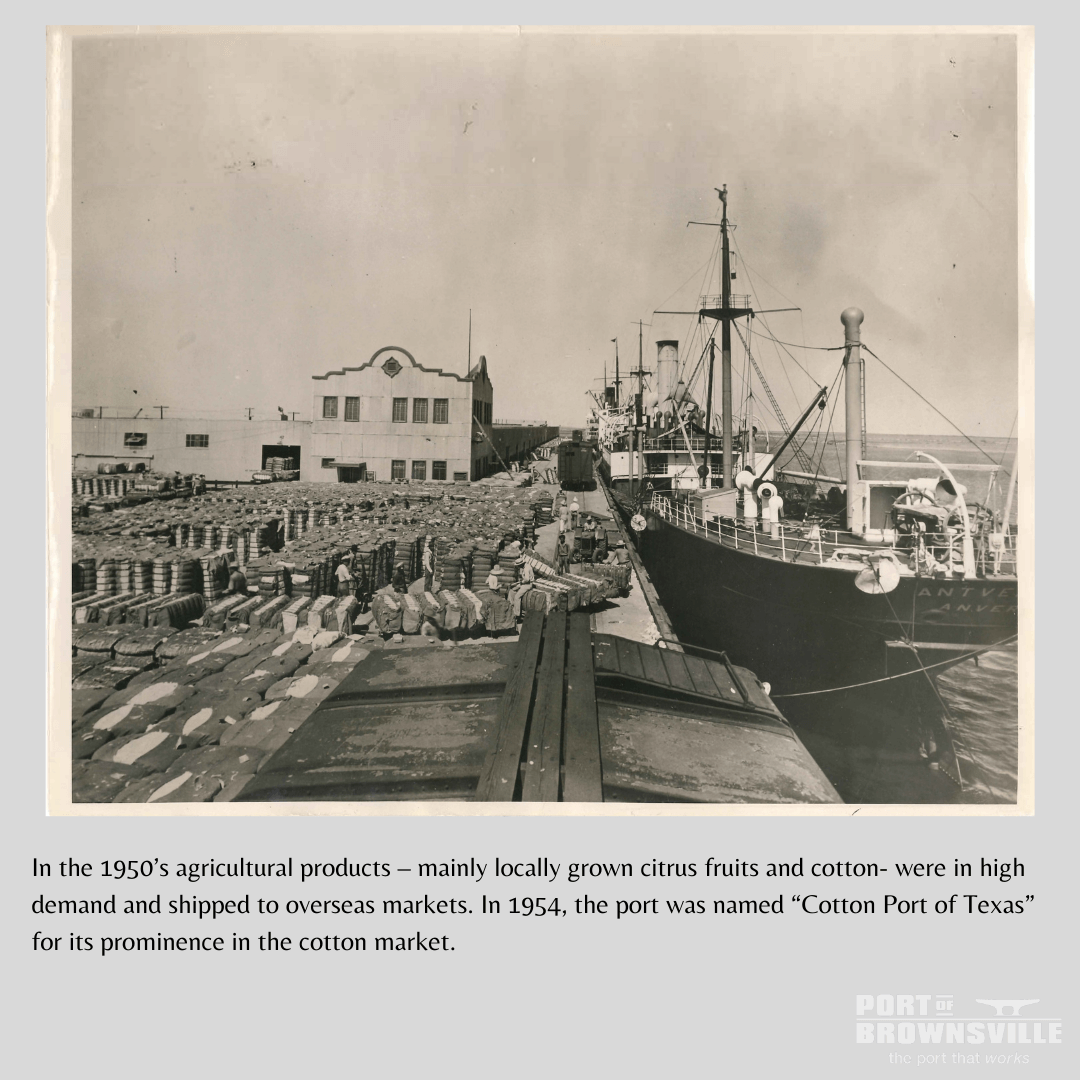BROWNSVILLE, Texas – With the 2018 Gulf shrimp season under way, local shrimpers are hopeful they will not come back with their nets empty despite a continued shortage of workers that plagues the industry.
For the 13th consecutive year, Reverend Mark Watters led the traditional Blessing of the Fleet July 10, at the Port of Brownsville’s fishing harbor. During his sermon, Rev. Watters asked the dozens of people gathered to pray for a bountiful harvest this season and for the well-being of all shrimpers while they are out at sea. The shrimping season began July 16.
The industry continues to battle with a shortage of workers due to the lack of H-2B worker visas issued by the federal government. Andrea Hance, executive director for the Texas Shrimp Association, said for this year there were more than 200,000 visa applicants, but only 66,000 visas were made available for distribution.
“The Department of Labor released an extra 15,000 visas, but that is just a drop in the bucket,” Hance said. “Only about 30 percent of the local fleet received approval for worker visas for this season, so most of our shrimpers are going without an adequate workforce,” she added.
Still, the TSA predicts an average season this year with high hopes of bringing back their trawlers full of the coveted Texas jumbo shrimp, which is the most valuable shrimp on the market.
“We provide the big jumbo shrimp of the world, basically,” Hance said. “Texas shrimp is more valuable because of its size. Our shrimp are larger, so they bring the highest marketable profit domestically,” she added.
According to the Texas Parks and Wildlife Department, every year the waters off Texas close for at least 60 days to shrimp fishing to allow brown shrimp to reach a larger and more valuable size for the shrimping industry while ensuring sustainable stocks in the future.
The fishing harbor at the Port of Brownsville is home to approximately 180 shrimp boats, which represents more than 30 percent of the entire Texas shrimping fleet comprised of 550 vessels.
The port’s fleet catches approximately 13 million pounds of shrimp each year with an estimated value of $72 million, reports the TSA. Additionally, the local shrimp industry supports 1,400 jobs in Cameron County.

Reverend Mark Watters prepares to bless the shrimping fleet during the traditional Blessing of the Fleet July 10 at the Port of Brownsville’s fishing harbor. The shrimping season began July 16.








